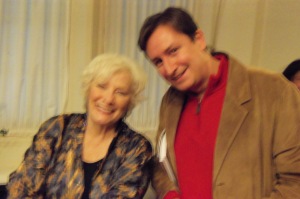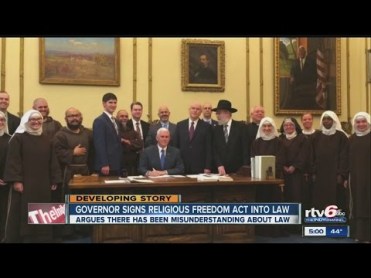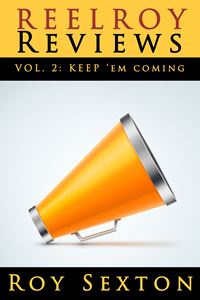Maybe I’m just going through some kind of existential mid-life crisis. (Hey, who’d like to produce this 44-year-old singing all of his favorite ill-suited pop songs – Lady Gaga, Tori Amos, Madonna, Bjork – as an expression of manopausal self in a cabaret extravaganza? It will be your best theatre going experience of the past 14.75 years. I guarantee!) Regardless, the three films viewed this weekend – seemingly drawn from a grab bag of fourth quarter 2016 offerings – all explore beautifully the very reason we dwell on this loony planet.
Split is a return to form for Hitchcock/Spielberg aspirant M. Night Shyamalan, chiefly because he was wise enough to cast it with a crackerjack James McAvoy (X-Men: Days of Future Past, X-Men: Apocalypse) and Betty Buckley (Carrie, Tender Mercies). (At one point while viewing, I wished Shyamalan had had the moxie to have staged this as a two-hander play with these two lightning bolts. Equus would have seemed like Oklahoma! by comparison.)
The film is a mash-up – a little bit of Silence of the Lambs, a touch of Primal Fear, a skosh of Dressed to Kill, a dab of Prisoners, a spritz of, well, any and all of Shyamalan’s other films (save The Last Airbender – the less said about that one, the better). We have a central figure “Kevin Wendell Crumb,” portrayed brilliantly by McAvoy (with just a hint of Baby Jane camp), suffering from dissociative identity disorder, as 23 different personalities (some nice, some really naughty) play ping-pong with Kevin’s daily routine. Buckley, as Dr. Karen Fletcher, is his cautious, morbidly transfixed therapist, whose ethereally calm demeanor and career aspirations keep her engaged with Kevin’s Sybil-esque shenanigans.
The plot details Kevin’s devolution into something called “The Beast” (think Silence of the Lambs‘ “Buffalo Bill” with, yes, super powers) as he kidnaps three teenage girls and locks them in one of those byzantine, blue-lit subterranean lairs that only seem to exist in really creepy movies. Dr. Fletcher starts to catch wise as various (kinder) personalities in Kevin’s psyche begin sending her panicked emails in the middle of the night. I won’t spoil any of the twists and turns, but the Hitchcockian “fun” derives from Buckley’s Fletcher calmly, relentlessly querying McAvoy’s Kevin about his nightly doings. Much like Hitchock’s late-career Psycho, Shyamalan’s Split is a directorial resurgence that simultaneously exploits the audience’s most prurient interests while giving us a Playhouse 90-style character study. McAvoy is a creepy hoot, and Buckley does yeoman’s work as a wary proxy for the audience’s revulsion/fascination. (My favorite quote from the film? When Buckley’s Fletcher describes the restaurant Hooters: “It’s like if Henry VIII ran a fast food franchise.”)
At one point, Buckley’s Fletcher asks plaintively, “”We look at those that are shattered and different as less than. What if they are more than?” The film’s central thesis is a half-realized query about whether or not mental illness is a kind of super power. It’s an intriguing idea not fully baked in the film, but Buckley’s delivery of that line, coupled with McAvoy’s scenery-chewing performance, gives me hope for the inevitable sequel.
And then I saw Sing, an animated film about koalas and elephants and pigs and porcupines and mice trying (literally) to find their voices in a world that had passed them by. Do I know how to plan a weekend at the movies?Guess what? Sing is brilliant and surprisingly moving. If you are not crying at the film’s conclusion wherein every misfit animal featured heretofore takes the stage and seizes the spotlight with deep-feeling abandon, well, then I feel sorry for you, you cold, emotionless curmudgeon!
The plot of Sing is a nifty corollary to Zootopia, which depicted a similar land where all creatures great and small coexist (mostly) in harmony, struggling (like us all) to make a decent living, pay the bills, and have a bit of joy. “Buster Moon,” a disarmingly charmingly skeezy koala (voiced by Matthew McConaughey finding the perfect role for his disarmingly charmingly skeezy career) is trying to revive his failing theatre by hosting a music competition. His best buddy (a trust-fund lamb voiced by an ever-dopey John C. Reilly) asks, “Singing competition? Who wants to see another one of those?” Well, this one? You will want to see.
Reese Witherspoon (Wild), Scarlett Johansson (Lucy), Taron Egerton (Kingsman … SUCH a voice – like a choir-boy Robbie Williams), Seth MacFarlane (Family Guy), Tori Kelly vocalize for the menagerie (pig, porcupine, ape, mouse, elephant – respectively) that joins Buster on his preposterous adventure. I found myself a bucket of salty tears when Kelly’s shy elephant Mimi belts Stevie Wonder’s “Don’t You Worry ‘Bout a Thing” at the film’s jubilant finale. Maybe it’s because I know what it feels like to be a misfit singer who has been excluded from others’ “reindeer games,” but I found Sing to be a riotous, thoroughly enjoyable celebration of letting all of us find and exercise our unique voices in this increasingly stifling world. I can’t wait for this inevitable sequel either.
Finally, Lion. Oh, Lion I wish I knew how to quit you. This film knocked me to the floor – either because of its excellence or because my low blood sugar from sitting in a darkened theatre for hours on end finished me off. Lion – the feature directorial debut by Garth Davis – relays the true story of Saroo Brierley (portrayed with zero guile as a child by Sunny Pawar and with heartbreaking ambivalence as an adult by Dev Patel) as he finds himself lost from his family in India and, ultimately, adopted by a well-meaning Australian couple (a haunting Nicole Kidman and David Wenham).Reminiscent of the the Jack Lemmon/Sissy Spacek classic Missing, Lion captures the devastating claustrophobia of a family separated by geography, time, bureaucracy. The toddler Saroo’s inability to communicate (he speaks Hindi and nearly no one else around him does) nor to identify his home (he accidentally ends up on a decommissioned train that takes him from a small town, the name of which he mispronounces, to the overpopulated metropolis of Calcutta) is the stuff of nightmares. The film plays fast and loose with narrative chronology, as the adult Saroo tries to unravel the mystery of his life before being adopted. Everyone is excellent, with Kidman giving her most subtle, nuanced performance in ages – one scene in particular where she palpably renders the tension of the adoptive parent to balance truth versus security as her child tries to make sense of his upbringing. Lion is a remarkable film, as full of hope as it is heartbreak.
I cried a lot this weekend at the movie theatre. Singing elephants, multiple personality protagonists, and displaced Indian orphans: all transfixing metaphorical representatives of our own existential pain over belonging, finding ourselves, and seeking a path forward. Well done, Hollywood. Well done.
_______________
Reel Roy Reviews is now TWO books! You can purchase your copies by clicking here (print and digital). In addition to online ordering at Amazon or from the publisher Open Books, the first book is currently is being carried by Bookbound, Common Language Bookstore, and Crazy Wisdom Bookstore and Tea Room in Ann Arbor, Michigan and by Green Brain Comics in Dearborn, Michigan. My mom Susie Duncan Sexton’s Secrets of an Old Typewriter series is also available on Amazon and at Bookbound and Common Language.
![[Image Source: Wikipedia]](https://reelroyreviews.files.wordpress.com/2017/02/split_2017_film.jpg?w=201&h=300)
![[Image Source: Wikipedia]](https://reelroyreviews.files.wordpress.com/2017/02/sing_2016_film_poster.jpg?w=202&h=300)
![[Image Source: Wikipedia]](https://reelroyreviews.files.wordpress.com/2017/02/lion_2016_film.png?w=210&h=300)


![Description: Film poster; Source: Wikipedia [linked]; Portion used: Film poster only; Low resolution? Sufficient resolution for illustration, but considerably lower resolution than original. Other information: Intellectual property by film studio. Non-free media use rationales: Non-free media use rationale - Article/review; Purpose of use: Used for purposes of critical commentary and illustration in an educational article about the film. The poster is used as the primary means of visual identification of this article topic. Replaceable? Protected by copyright, therefore a free use alternative won't exist.](https://reelroyreviews.files.wordpress.com/2015/03/chappie.jpg?w=202&h=300)
![Description: Film poster; Source: Wikipedia [linked]; Portion used: Film poster only; Low resolution? Sufficient resolution for illustration, but considerably lower resolution than original. Other information: Intellectual property by film studio. Non-free media use rationales: Non-free media use rationale - Article/review; Purpose of use: Used for purposes of critical commentary and illustration in an educational article about the film. The poster is used as the primary means of visual identification of this article topic. Replaceable? Protected by copyright, therefore a free use alternative won't exist.](https://reelroyreviews.files.wordpress.com/2015/03/insurgent.jpg?w=203&h=300)
